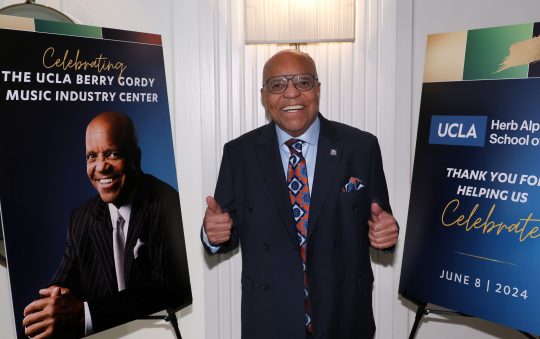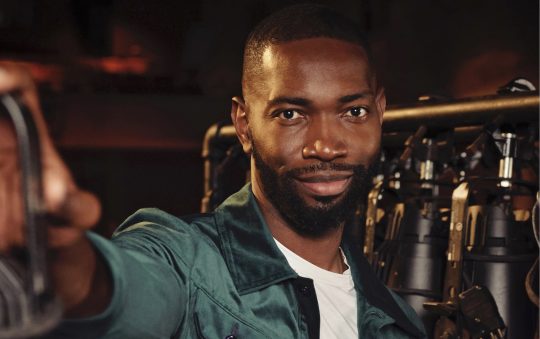Child Watch

South African Archbishop Desmond Tutu, one of the world’s leading peace and justice advocates, has called Bryan Stevenson “America’s Nelson Mandela.” He has gotten innocent men off death row, successfully argued before the U.S. Supreme Court multiple times, including to ban “death sentences” – capital punishment and life imprisonment without parole for offenses committed by juveniles.
In June, he spoke about “How to Keep Black Boys Alive” to 2,000 college-age Children’s Defense Fund Freedom Schools® servant leaders at CDF-Haley Farm.
“We’re living at a time when there is an incredible crisis that young men of color are facing. There is a challenge that is unique in our history,” he said. “We’ve always had challenges but this is a different kind of challenge because it is structural, it is systemic, and it is institutional.”
Bryan put it in perspective for the young college audience. In 1972 – 300,000 people were in jails and prisons in America compared to today with 2.5 million people behind bars. The U.S. has 5 percent of the world’s population but 25 percent of the world’s imprisoned. And in Alabama, where he lives, a person with a criminal conviction permanently loses the right to vote. Right now in Alabama, 31 percent of Black men in the state have lost the right to vote.
Bryan Stevenson shared this story about visiting a new client on Alabama’s death row: As he parked, “This truck was there. And some of you all who live in the South see these things all the time. And this truck was like a shrine to the Old South. It has all of these bumper stickers on it. It had the Confederate flags everywhere. It had the gun rack. … There was a White guard standing at the prison door when I got there. And I said, ‘Hi, I’m here for a legal visit.’ And the first thing the man said to me was, ‘Well, you’re not a lawyer.’ I said, ‘Oh, yes, sir, I am.’ He said, ‘I don’t believe you’re a lawyer.’ I said, ‘I am an attorney. I’ve been to this prison before.’
“He said, ‘Well, where is your bar card?’ Well, my bar card was in the car. He made me go back to the car to get my bar card. I came back. I felt insulted. I showed him my bar card. I said, ‘Look, I want to go inside now.’ And the man said, ‘All right, all right, but you’re going to have to get in the bathroom. I’m going to have to give you a strip search.’ I said, ‘No, sir, lawyers don’t get strip-searched coming into this prison.’ He said, ‘You’re coming into my prison. You’re going to get in that bathroom and get strip-searched.’”
After driving two hours to get there he made the very difficult decision to submit to the humiliating search. More hurdles and indignities followed. Finally, when the guard unlocked the door the guard asked, “’Did you see that truck out there with all those bumper stickers and flags?’ I said, ‘Yeah, I saw that truck,” He said, ‘I want you to know that’s my truck.’”
Antagonized and angry, Bryan Stevenson went to meet his new Black client who had been in 29 foster homes by age 10, showed signs of bipolar disorder by age 13, symptoms of schizophrenia by age 15, used heroin by age 16, was homeless by age 17, began having psychotic episodes by age 18, and in the midst of one, stabbed someone to death by age 19 and was on death row. There was no mental illness defense in his record.
Months later, Bryan and his team presented a vigorous mental illness defense to a judge over three days. Weeks later, he returned to death row for a visit.
He walked to the guard at the door and said, ‘Hi, I’m here for a legal visit. Here’s my bar card.’ And the [guard] immediately [responded], ‘Hello, Mr. Stevenson. How are you?’ It completely threw me. I said, ‘I’m fine. I’ll go in the bathroom and get ready for your search.’ ‘Oh, Mr. Stevenson, we’re not going to do that today,’ [the guard replied]. I said, ‘Really? Thank you. Well, I’ll go back here and sign the book.’ He said, ‘Mr. Stevenson, I saw you coming and I signed you in.’”
Then the guard told Bryan, “‘You know, I came up in the foster care system, too. I didn’t think anybody had it as bad as I did, but I realized that maybe your client had it worse than I did.” I’m a very angry person. I’ve been angry my whole life. But I’m going to tell you something. I think what you are doing is a good thing.’ And then he looked at me and says, ‘I hope you keep fighting for justice.’”
Marian Wright Edelman is president of the Children’s Defense Fund whose Leave No Child Behind® mission is to ensure every child a Healthy Start, a Head Start, a Fair Start, a Safe Start and a Moral Start in life and successful passage to adulthood with the help of caring families and communities. For more information go to www.childrensdefense.org






